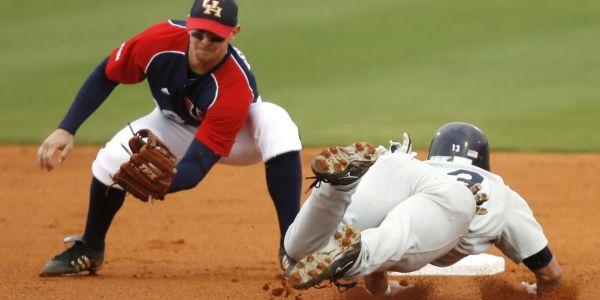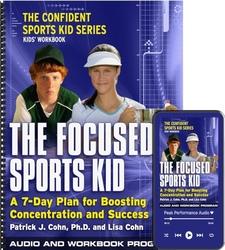
What’s the Recipe for Achieving Peak Performance?
What helps your sports kids perform their best during competitions?
Most athletes are dumbfounded when asked this question. They may come up with a few responses on the fly, such as working hard in practice, improving their mechanics or practicing more.
However, those efforts are general and limited. If your young athletes have no recipe for peak performance, their training and preparation will be haphazard.
During competitions, kids will perform inconsistently. They’ll have some games where they are crushing it and feeling unstoppable, and their next game will be riddled with mistakes.
With no success recipe, kids’ confidence will be low because they won’t know for sure that they are optimally prepared to compete.
What is a Peak Performance Recipe?
A peak performance recipe is a specifically designed preparation regimen intended to optimize an athlete’s competitive performance.
Elements of a peak performance recipe can include pregame visualization, long-term and short-term goals, consistent competitive routines, practice goals, weekly performance evaluations, mental skills training, specific diet and weight training.
When creating a peak performance recipe, sports kids should consider three key components:
- (Specific) What particular elements aid peak performance? The goal is to define steps that contribute to peak play, such as nutrition, recovery strategies, mental focus techniques and training regimens.
- (Personal) What works for your athletes? Certain elements that help others perform at their peak may not work for them. Reviewing past successful competitions will help kids identify factors that foster peak performance.
- (Positive) Young athletes should ask themselves, “What should I do rather than what should I avoid?” Focusing on what they should do rather than what to avoid shifts their mindset toward proactive, positive action.
This empowering approach gives athletes a sense of control during competitions and leads to higher confidence. Identifying a peak performance recipe helps kids perform better and leads to greater consistency during competitions.
During the fourth quarter of the NFL Wildcard game against the Green Bay Packers, Philadelphia Eagles wide receiver A.J. Brown was on the sidelines reading a book about inner excellence.
Brown said he brings the book to every game. While the defense is on the field, Brown reads highlighted passages that help him maintain his composure and focus.
“It gives me a sense of peace,” he said. “That’s a book I bring every single game. My teammates call it a recipe. … It’s got a lot of points in there. A lot of mental games. I use it to refocus and lock in despite what may transpire in the game, good or bad.”
Brown’s sideline routine is a strategy that helps him perform at his peak. Athletes can’t be haphazard in their preparation if they want to perform at their peak.
Achieving athletic success requires knowing what to do, when to do it, and how to do it.
The first step in creating a peak performance recipe is determining what has contributed to successful past performances.
Kids should try writing down as many strategies as possible that have produced positive results. Then, they should create a Top 10 list of the most impactful efforts. That will be their performance recipe!
Related Kids Sports Psychology Articles:
- Improving Young Athletes’ Thinking to Boost Performance
- How Choking Hurts Athletes’ Performance
- Helping Kids Perform Their Best in Sports at Crunch Time
*Subscribe to The Sports Psychology Podcast on iTunes
*Subscribe to The Sports Psychology Podcast on Spotify
THE FOCUSED SPORTS KID (DIGITAL DOWNLOAD)

“The Focused Sports Kid” helps sports kids who get easily distracted and can’t maintain their focus in competition. In this program, you and your athlete learn concentration-boosting strategies to help young athletes develop laser focus during competition. “The Focused Sports Kid” is two programs in one. You get a manual and Audio program for parents/coaches, and a PDF workbook and audio programs for young athletes.
“We just completed the first ten tips, it has helped tremendously for (our daughter) and us. We’ve learned to keep our behavior and comments in check. She’s letting mistakes happen and not worrying about them, she’s now just moves on to the next play with the same attitude as before the mistakes. She’s playing more aggressively all game. Her coach even mentioned that whatever we are doing, keep doing because it’s working.” ~Scott, Sports Dad
